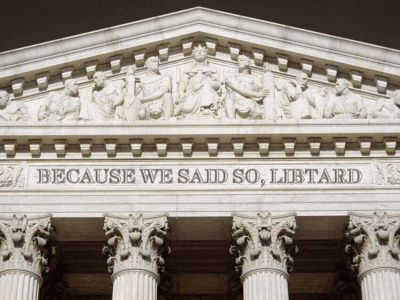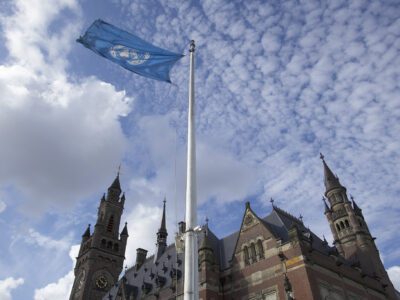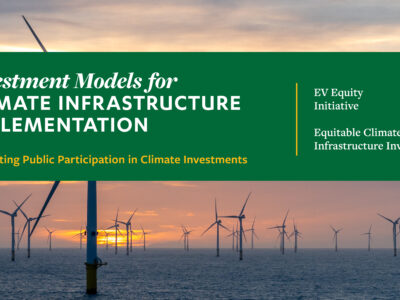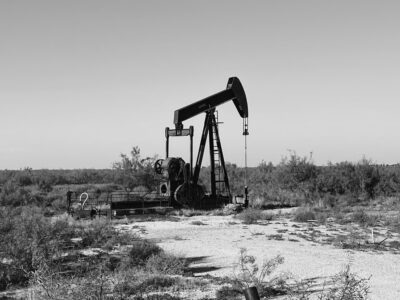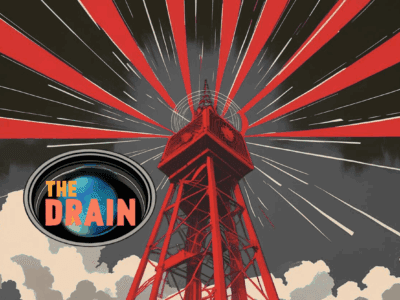World’s Biggest Court Opinion on Climate
The Drain is a weekly roundup of environmental and climate news from Legal Planet.
For more than 24 hours last week, my social media feeds were a wall of jubilant reaction to the World Court’s big climate opinion. People who work on, and care about, the climate crisis needed some good news, clearly. That begs the question, is the advisory opinion really as big a deal as people wanted to believe? “Without a doubt. It is a huge step forward," UCLA Law Professor Kate Mackintosh told me in an email. Mackintosh is the Executive Director of the UC...
CONTINUE READINGDoes Federal Law Still Preempt State Standards Relating to Fuel Efficiency?
The answer may depend on what being “in effect” means.
If a tree falls in the forest but no one hears it, does it still make a sound? If a law hasn’t been formally repealed but can be violated with complete impunity, is it still in effect? I'll leave the first question to philosophers, but the second one could have major legal implications. Here's why. For decades, the government has set fuel efficiency standards for new vehicles. But in the big reconciliation bill it recently passed, Congress decided to embrace gas...
CONTINUE READINGAnother Attempt to Measure NEPA’s Impact
This most recent report is better, but still has significant flaws
The Breakthrough Institute has produced another report on litigation under the National Environmental Policy Act (NEPA), building on a report it prepared earlier, which I sharply criticized in this prior blog post. The updated report is a mixed bag: It doesn’t solve many of the methodological issues I identified in the earlier blogpost; it does do more to forthrightly acknowledge some of those limitations; but then it proceeds to make sweeping statements in its concl...
CONTINUE READINGThe Unitary Executive Theory As Government-Smasher
The Supreme Court's Imperial Presidency drive isn't formalism: it is calculated to destroy the state.
It is a misnomer to discuss the current Supreme Court’s “jurisprudence” on anything, as if it has an approach to any legal question other than, “because we said so, libtard.” But in the wake of the Court’s lawless and arbitrary use of the shadow docket to destroy statutes and precedents for the purpose of giving Donald Trump greater power – and not even bothering to explain why – something did occur to me. To the extent that there is any jurisp...
CONTINUE READING“A Historic Day”: the World Court’s Big Climate Opinion
UCLA Law’s Anna Spain Bradley offers takeaways from the International Court of Justice’s Advisory Opinion on the Obligations of States in Respect of Climate Change.
It’s been a long time coming but nations of the world officially have a legal obligation to limit their emissions of greenhouse gases or else pay reparations for the harms of climate change. That was the unanimous opinion handed down yesterday by the 14 judges on the International Court of Justice, sometimes called the World Court. The Advisory Opinion, though technically non-binding, affirms the existence of a legal right to a “clean, healthy and sustainable env...
CONTINUE READINGInvestment Models for Climate Infrastructure Implementation
Exploring avenues for implementing publicly-supported climate solutions.
This month’s federal budget and policy legislation rescinded billions of dollars in clean energy and climate-related infrastructure investments and halted the progress of many projects already underway, including major tax incentive and grant programs focused on wind and solar energy, vehicle electrification, and domestic manufacturing. A subsequent executive order further cemented the federal government’s shift away from supporting climate-related investments. ...
CONTINUE READINGGlobal Energy Trends
Trump or no Trump, the global economy is shifting toward clean energy.
The International Energy Agency’s 2025 review isn’t likely to make the bestseller list. But there’s some eye-opening information. We can lose sight of global trends because of our understandable preoccupation with our own situation. Not that U.S. trends are unimportant, mind you, but they’re not the whole ball game. The big takeaway globally is that oil and coal are basically static, and natural gas is growing slowly. Meanwhile alternate forms of energy are boo...
CONTINUE READINGNewsom Proposes More Oil Drilling In CA
The State Should Get Far More Benefit
Last Thursday, the Newsom Administration proposed a new law allowing extensive additional oil drilling in California, as long as the new wells are in existing oil fields and the oil company closes one well in the oil field for each one drilled and one in health a safety designated areas. The proposal appears to be in response to threatened oil refinery closures in the state. In my view, there are other ways to respond to threatened refinery closures, but, having spen...
CONTINUE READINGWhy Did Congress Defund Public Media?
The Drain is a weekly roundup of environmental and climate news from Legal Planet.
We just witnessed the untimely death of a 57-year-old American institution that has made life better for just about everyone. President Lyndon Johnson announced the creation of the Corporation for Public Broadcasting in 1967 to “assist stations and producers who aim for the best in broadcasting good music, in broadcasting exciting plays, and in broadcasting reports on the whole fascinating range of human activity.” This new organization, Johnson told the count...
CONTINUE READINGPerhaps the Least Qualified FERC Nominee in History
Trump’s nominee seems to have essentially no relevant experience or expertise.
Trump has nominated a guy named David LaCerte to serve on the Federal Energy Regulatory Commission. (FERC) There’s sparse public material available about LaCerte, a tribute to his prior accomplishments. LaCerte's record is almost devoid of relevant experience and expertise. "FERC Commissioner" is not usually considered an entry-level job in energy law. FERC cases involve the management of the entire U.S. energy grid, except for part of Texas. Energy law and regu...
CONTINUE READING





